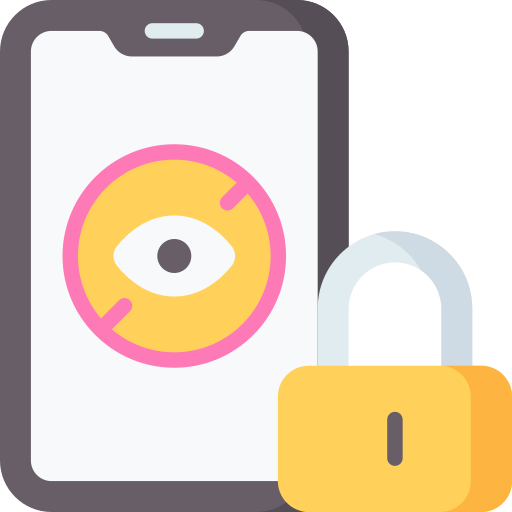The Importance of Balancing Gaming Time with Other Activities
One key aspect of maintaining a healthy balance between gaming and other activities is recognizing the importance of diversifying our leisure time. While gaming can be enjoyable and entertaining, it is crucial to engage in a variety of activities to promote overall well-being. This could include participating in physical exercise, pursuing hobbies or interests outside of gaming, spending time with friends and family, or even simply taking some quiet moments for self-reflection.
By incorporating these different activities into our daily routines, we not only enhance our physical health but also nurture our mental and emotional well-being. Physical exercise helps to improve cardiovascular fitness, increase muscle strength and flexibility, and release endorphins that boost mood. Exploring alternative hobbies allows us to discover new passions and interests while stimulating creativity. Spending quality time with loved ones strengthens social connections and fosters a sense of belonging.
Furthermore, balancing gaming time with other activities can help prevent excessive screen time which has been linked to various negative effects on health such as eye strain, sleep disturbances, sedentary behavior leading to weight gain or obesity-related issues. Additionally, by engaging in diverse activities outside of gaming we broaden our horizons and develop important life skills such as problem-solving abilities or effective communication.
In conclusion
Recognizing the Signs of Gaming Addiction and Overuse
Excessive gaming can sometimes lead to addiction and overuse, which can have negative effects on various aspects of a person’s life. It is important to recognize the signs of gaming addiction and overuse in order to address these issues effectively. One common sign is when an individual spends an excessive amount of time playing games, often neglecting other responsibilities or activities. They may also experience difficulty controlling their gaming habits, feeling restless or irritable when unable to play.
Another indication of gaming addiction and overuse is a decline in academic or occupational performance. Those struggling with this issue may find it challenging to focus on tasks outside of gaming, leading to lower grades or job performance. Additionally, they may withdraw from social interactions and lose interest in activities they once enjoyed.
Physical symptoms can also manifest as a result of excessive gaming. Individuals may experience headaches, eyestrain, sleep disturbances, and even musculoskeletal problems due to prolonged periods spent sitting in front of screens without breaks.
Recognizing these signs early on can help individuals seek appropriate support and take steps towards finding a healthier balance between gaming and other aspects of their lives. By being aware of these warning signs, individuals can make informed decisions about their gaming habits and work towards maintaining a well-rounded lifestyle that includes various activities beyond just playing video games.
Setting Realistic Time Limits for Gaming Sessions
Setting realistic time limits for gaming sessions is crucial in maintaining a healthy balance between gaming and other activities. It is important to establish boundaries and stick to them, as excessive gaming can lead to neglecting responsibilities, relationships, and overall well-being.
One effective approach is to set specific time limits for each gaming session. This could be based on factors such as personal commitments, work or school schedules, and the amount of free time available. By allocating a certain amount of time dedicated solely to gaming, individuals can enjoy their favorite games without it taking over their entire day.
Additionally, it can be helpful to incorporate breaks within the designated gaming time. Taking short intervals every hour or so allows players to rest their eyes, stretch their muscles, and refresh their minds. These breaks not only promote physical well-being but also prevent the immersion into prolonged periods of gameplay that may disrupt daily routines.
By setting realistic time limits for gaming sessions, individuals are able to strike a balance between leisure activities and other responsibilities in life. Establishing these boundaries helps create structure and discipline while ensuring that gamers have ample opportunity for other pursuits outside of the virtual world.
Encouraging Physical Activity and Exercise Outside of Gaming
Regular physical activity and exercise are essential for maintaining a healthy lifestyle, especially when it comes to balancing gaming time. Encouraging individuals to engage in activities outside of gaming can help improve their overall well-being. Whether it’s going for a walk, playing a sport, or participating in group fitness classes, there are numerous options available to promote physical activity.
Engaging in regular exercise not only helps combat the sedentary nature of gaming but also provides an opportunity for individuals to socialize and interact with others. Joining sports teams or fitness groups allows gamers to meet like-minded individuals who share similar interests while getting active together. This social aspect can be particularly beneficial for those who spend long hours gaming alone.
Parents and guardians play a crucial role in encouraging physical activity among young gamers. They can organize family outings that involve outdoor activities such as hiking, biking, or even just spending time at the park. By setting an example through their own participation in physical activities and prioritizing outdoor playtime over excessive screen time, parents can instill healthy habits that will benefit children throughout their lives.
Implementing Regular Breaks and Rest Periods during Gaming Sessions
Regular breaks and rest periods are crucial when it comes to gaming sessions. It is easy to get caught up in the excitement and lose track of time, but taking breaks is essential for both physical and mental well-being. Sitting for long periods can lead to muscle stiffness, eye strain, and other health issues. By implementing regular breaks, gamers can give their bodies a chance to stretch, relax their eyes, and prevent discomfort.
During these breaks, it is important to engage in activities that promote movement and relaxation. Taking a short walk or doing some light stretching exercises can help alleviate any built-up tension in the muscles. Additionally, closing your eyes or focusing on something at a distance can provide relief for tired eyes from staring at screens for extended periods.
In addition to physical benefits, regular breaks also have cognitive advantages. Studies have shown that taking short breaks during tasks improves focus and productivity when returning to the activity. This applies to gaming as well – by stepping away from the game momentarily, players can clear their minds and come back with renewed concentration. Implementing regular breaks not only enhances overall gaming experience but also promotes healthier habits that contribute positively to one’s well-being.
Promoting Social Interaction and Communication with Others
Promoting social interaction and communication with others is crucial for maintaining a healthy balance in gaming habits. Engaging in real-life interactions helps individuals develop important social skills, build meaningful relationships, and foster a sense of belonging within their communities. One way to encourage social interaction is by organizing or participating in local gaming events or tournaments where gamers can come together, compete, and connect with like-minded individuals who share similar interests.
Another effective method to promote socialization is through multiplayer online games that require teamwork and collaboration. These types of games provide opportunities for players to communicate and strategize with each other, fostering cooperation and building strong bonds among participants. Additionally, joining online gaming communities or forums allows gamers to engage in discussions about their favorite games, exchange tips and strategies, as well as make new friends from different parts of the world.
Furthermore, it’s essential to strike a balance between virtual interactions during gaming sessions and face-to-face communication outside of the digital realm. Encouraging gamers to participate in activities such as team sports clubs or hobby groups can help them interact with others who may not necessarily be interested in gaming but share common interests. This diversification of social circles fosters personal growth while also providing an opportunity for gamers to take a break from screen time and engage in physical activity or explore new hobbies.
By prioritizing the promotion of social interaction and communication alongside gaming activities, individuals can experience more fulfilling experiences both on- and offline. Building connections with others allows for personal development while also preventing isolation often associated with excessive video game use. So let’s remember that striking a balance between virtual adventures and real-life connections contributes immensely to our overall well-being
Creating a Schedule or Routine to Balance Gaming and Responsibilities
Creating a schedule or routine is essential for balancing gaming time with responsibilities. By allocating specific time slots for both gaming and other activities, individuals can ensure that they are fulfilling their obligations while still enjoying their favorite games. This not only promotes better time management but also helps to maintain a healthy balance in life.
When creating a schedule, it is important to consider the amount of time needed for each responsibility and allocate accordingly. For example, setting aside designated hours for work or study ensures that these tasks are given priority and completed efficiently. Similarly, incorporating regular breaks within the schedule allows individuals to unwind and relax without compromising on productivity.
Additionally, it is beneficial to establish boundaries by clearly defining when gaming sessions begin and end. By adhering to these set times, individuals can avoid excessive gaming that may interfere with other commitments or lead to neglecting responsibilities altogether. Moreover, sticking to a consistent routine helps develop self-discipline and reduces the likelihood of falling into unhealthy habits related to excessive gaming.
In summary, creating a schedule or routine plays a crucial role in achieving a balanced lifestyle between gaming and responsibilities. It enables individuals to manage their time effectively while ensuring that all necessary tasks are accomplished. By implementing this practice, one can enjoy leisure activities like gaming without neglecting important obligations in life.
Exploring Alternative Hobbies and Interests to Diversify Leisure Time
Engaging in alternative hobbies and interests can be a great way to diversify leisure time and reduce excessive gaming. By exploring different activities, individuals can discover new passions and develop a more balanced lifestyle. One option is to try out various sports or physical activities such as hiking, swimming, or cycling. These not only provide opportunities for exercise but also allow individuals to connect with nature and enjoy the outdoors.
Another avenue to explore is creative pursuits like painting, drawing, writing, or playing a musical instrument. These activities offer an outlet for self-expression and can be both therapeutic and fulfilling. Additionally, joining clubs or groups focused on specific hobbies such as photography, cooking, gardening, or book clubs provides opportunities for socializing while pursuing shared interests.
Furthermore, learning new skills through online courses or workshops can open doors to exciting possibilities. From coding and graphic design to woodworking and pottery making – there are countless options available that cater to diverse interests. By expanding one’s knowledge base in these areas of interest outside of gaming world , individuals not only broaden their horizons but also enhance their personal growth.
By actively seeking out alternative hobbies and interests beyond gaming , individuals can discover new sources of enjoyment while maintaining a healthy balance in their lives . Whether it’s engaging in physical activities , pursuing creative endeavors , joining hobby-based communities ,or learning new skills – the key is finding what resonates with you personally . So go ahead! Embrace the opportunity to explore different avenues of interest; you never know where they might lead you!
Utilizing Parental Controls and Monitoring Tools for Young Gamers
Parental controls and monitoring tools can be invaluable when it comes to managing a child’s gaming habits. These features allow parents to set limits on screen time, control access to certain games or content, and monitor their child’s online interactions. By utilizing these tools, parents can ensure that gaming remains a healthy and balanced part of their child’s life.
One of the key benefits of parental controls is the ability to set time limits for gaming sessions. This helps prevent excessive screen time and encourages children to engage in other activities such as homework, chores, or physical exercise. By setting realistic boundaries, parents can teach their children about responsible use of technology while also promoting a well-rounded lifestyle.
In addition to time limits, parental controls also provide options for filtering content and restricting access to age-inappropriate games. This allows parents to protect their children from exposure to violent or explicit material that may not be suitable for their age group. By using these features, parents can have peace of mind knowing that their child is engaging with age-appropriate content in a safe environment.
Seeking Support and Resources for Individuals Struggling with Gaming Imbalance.
Seeking support and resources for individuals struggling with gaming imbalance is crucial in addressing this issue effectively. It is important to recognize that excessive gaming can have negative impacts on various aspects of a person’s life, including their mental health, relationships, and overall well-being. Fortunately, there are several avenues available for those seeking help.
One option is to reach out to mental health professionals who specialize in addiction or gaming disorder. These experts can provide personalized treatment plans and strategies to manage gaming habits more effectively. They may offer therapy sessions or recommend support groups where individuals can connect with others facing similar challenges.
Additionally, online communities and forums dedicated to gaming addiction recovery can be valuable sources of support. These platforms allow individuals to share their experiences, seek advice from peers who have successfully overcome gaming imbalances, and find encouragement during difficult times. Engaging with these communities can provide a sense of belonging and understanding that helps combat feelings of isolation often associated with excessive gaming.
Furthermore, many organizations offer resources specifically designed for gamers looking to strike a healthier balance between their virtual world and real-life responsibilities. Websites such as the World Health Organization (WHO) or the National Institute on Drug Abuse (NIDA) provide information about the signs of addiction, self-assessment tools, educational materials for both gamers and parents/guardians alike, as well as helpline numbers or chat services where one can seek immediate assistance.
By actively seeking support and utilizing available resources like professional help or online communities focused on recovery from gaming imbalance issues while accessing reliable information provided by reputable organizations; individuals struggling with excessive gaming can take significant steps towards regaining control over their lives.
How do you balance gaming time with other activities?
Balancing gaming time with other activities is important to maintain a healthy lifestyle. One way to achieve this is by setting time limits for gaming sessions and allocating specific time for other activities such as exercise, socializing, or pursuing other hobbies.
How can I recognize the signs of gaming addiction and overuse?
Signs of gaming addiction and overuse may include neglecting responsibilities, a decline in academic or work performance, isolation from family and friends, irritability or restlessness when not gaming, and neglecting personal hygiene. If you or someone you know is exhibiting these signs, it may be a sign of gaming imbalance.
What are realistic time limits for gaming sessions?
Realistic time limits for gaming sessions may vary depending on individual circumstances. However, it is generally recommended to limit gaming sessions to 1-2 hours a day for recreational gamers. For individuals struggling with gaming addiction, it may be necessary to further restrict or eliminate gaming time altogether.
How can physical activity and exercise be encouraged outside of gaming?
Encouraging physical activity and exercise outside of gaming can be done by participating in sports, engaging in outdoor activities such as hiking or cycling, or joining fitness classes. Setting goals, creating rewards for achieving them, and finding physical activities that are enjoyable can help maintain motivation.
Why is it important to implement regular breaks and rest periods during gaming sessions?
Implementing regular breaks and rest periods during gaming sessions is crucial to prevent physical strain, eye fatigue, and mental exhaustion. Taking breaks allows for physical movement, rest, and helps maintain focus and concentration when gaming.
How can social interaction and communication with others be promoted while gaming?
Social interaction and communication while gaming can be promoted by participating in multiplayer online games, joining gaming communities or forums, and connecting with friends or family members who share the same gaming interests. Engaging in cooperative or competitive gameplay with others can enhance the social aspect of gaming.
Is creating a schedule or routine beneficial for balancing gaming and responsibilities?
Yes, creating a schedule or routine is highly beneficial for balancing gaming and responsibilities. By allocating specific time slots for gaming and other activities, individuals can ensure that they fulfill their responsibilities while still enjoying their gaming hobby.
How can alternative hobbies and interests be explored to diversify leisure time?
Exploring alternative hobbies and interests can be done by trying out new activities such as reading, painting, playing a musical instrument, cooking, or engaging in outdoor activities. By diversifying leisure time, individuals can find new sources of enjoyment and reduce dependence on gaming.
How can parental controls and monitoring tools help young gamers?
Parental controls and monitoring tools can help parents restrict access to certain games, set time limits for gaming sessions, and monitor their child’s gaming activities. These tools provide a way to maintain a healthy balance between gaming and other responsibilities for young gamers.
Where can individuals struggling with gaming imbalance seek support and resources?
Individuals struggling with gaming imbalance can seek support and resources through various channels. This includes consulting with mental health professionals, joining support groups or online forums dedicated to gaming addiction, and seeking guidance from friends, family, or school counselors who can provide assistance and support.




